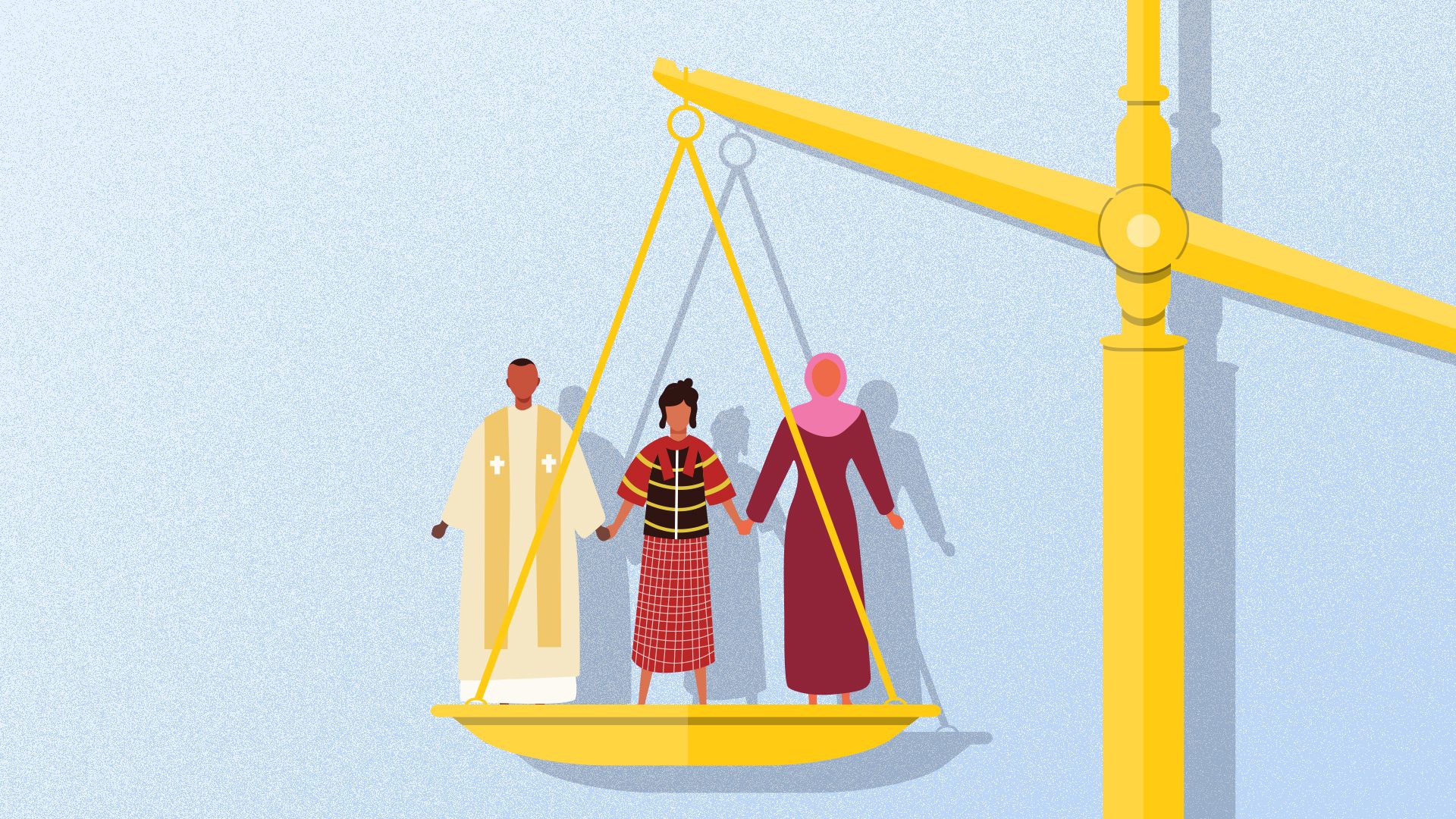SUMMARY
This is AI generated summarization, which may have errors. For context, always refer to the full article.

The House of Representatives passed a bill that would impose jail time on anyone who would commit discriminatory acts based on race, ethnicity, and religion in the Philippines.
On Tuesday, February 2, a total of 208 legislators approved on 3rd and final reading House Bill (HB) No. 8243 or the proposed Equality and Non-Discrimination on Race, Ethnicity, and Religion Act.
No other lawmaker voted against the bill or abstained from the vote.
The bill prohibits a comprehensive list of discriminatory acts based on race, ethnicity, and religion. Violators stand to face jail time and may be required to pay a fine, depending on the severity of the act.
House Deputy Speaker and Basilan Representative Mujiv Hataman, and Anak Mindanao Representative Amihilda Sangcopan both hailed the passage of the measure in the House.
They said the bill would help protect the rights of Moro and indigenous peoples in the country.
“Kapag maisasabatas ang panukalang ito, wala nang inosenteng Moro ang maaaresto sa isang krimen. Wala nang hindi matatanggap sa trabaho dahil lamang siya ay may suot na hijab,” Hataman and Sangcopan said in a joint statement.
(If this bill becomes law, there won’t be any other innocent Moro who would go to jail for a crime he or she didn’t commit. No one else would lose her job because she’s wearing a hijab.)
There’s still a long way to go before HB No. 8243 becomes a law, however. Its Senate version is still pending at the committee level.
The bill does not cover discriminatory acts based on gender, which are prohibited under the sexual orientation and gender identity and expression (SOGIE) bill. The SOGIE bill is encountering strong opposition in the House committee on women and gender equality, where the measure is still pending.
What are the discriminatory acts under HB No. 8243?
If passed into law, HB No. 8243 would prohibit the following acts of discrimination when committed on the basis of race, color, descent, national or ethnic origin, or religion beliefs:
- Preventing the exercise of political rights of another, including the right to vote
- Imposing “onerous terms” before these political rights are granted
- Refusal to employ a qualified applicant
- Denying or limiting access of an employee to work benefits and opportunities
- Dismissal of an employee
- Favoring another job applicant due to his or her race, ethnicity, or religion
- Refusal to admit a student in a school
- Denying or limiting access of a student to any benefit or privilege provided by the school
- Failing to make reasonable efforts to make facilities accessible to people whose disabilities reduce their range of mobility
- Refusal to supply goods or services to a person
- Denial of access to medical or health services open to the general public
- Denial of applications for license, clearance, certification or any other government document
- Discrimination in the acquisition, possession, utilization, lease, or disposal of lands, including housing and other accommodations
- Denial of entry or access to any facility and assembly that are open to the general public
- Creating advertisements
The bill bans advertisements that discriminate against a person’s race, ethnicity, or religion.
It also prohibits the discriminatory portrayal of groups as religiously, racially, or ethnically inferior in learning institutions, books, learning materials, and teaching devices.
Speeches that promote hatred or violence against another person’s race, ethnicity, and religion would be banned as well.
The bill likewise penalizes acts that impair or nullify a person’s human rights and fundamental freedoms. These include the “unnecessary, unjustified, illegal, and degrading” investigatory activities of the police and the military.
Those who would incite others to commit these discriminatory acts would be found liable under the bill.
What would be the punishment for violators?
Depending on the circumstance and gravity of the offense, HB No. 8243 would punish violators with jail time from 30 days up to 6 months. They may also be required to pay a fine between P10,000 and P100,000.
If the offender is a corporation, partnership, or association, then the officer or employee responsible for the discriminatory act would face the maximum penalty under the bill.
The bill would also impose the maximum punishment when the perpetrator is a parent, guardian, or relative within the second degree of consanguinity of the victim. The same penalty would be meted on a manager of an establishment which has no license to operate.
If the violator is a foreigner, then he or she would be deported immediately after the service of the sentence and would be perpetually barred from entering the Philippines. – Rappler.com
Add a comment
How does this make you feel?





There are no comments yet. Add your comment to start the conversation.